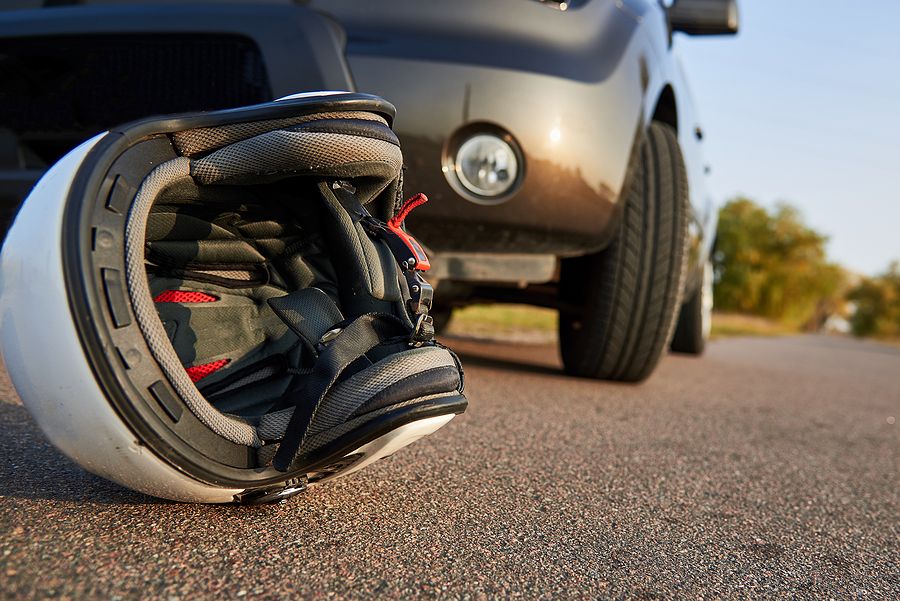7 Surprising Stats About Motorcycle Accidents and How to Prevent Them
Motorcycles are exhilarating and a great form of transportation. But unlike automobiles motorcycles aren't exactly built to withstand crashes and reports show that motorcycle accidents are on the rise. However, the data demonstrates that with the proper gear, training and due diligence many of these accidents can be prevented. And when not preventable, the same care can reduce the impact of the damages to the rider and their passengers. Continue reading for seven surprising motorcycle accident statistics and safety tips to help prevent them.
1. Motorcyclists are 26 times more likely to die in a crash.

As exciting as they are to ride, motorcycles are
statistically more dangerous than other vehicles to operate. They are generally
less stable, harder to see by other drivers on the road, and provide less
physical protection from the environment. According to the National Highway
Traffic Safety Administration (NHTSA) accidents involving motorcycles
represent a disproportionate amount of all traffic accident deaths. Riders are
26 times more likely to die as a result of their injuries.
While accidents can't be avoided riders can take steps to
reduce the chances of them occurring and the risk of injury when they do occur.
Proper training, licensing, and wearing the right gear are all prudent steps
every rider should take to reduce their risk of injury or death in an accident.
2. Head injury is the #1 cause of death in motorcycle accidents.
One of the more serious injuries sustained by motorcycle
riders is a TBI or traumatic brain injury. A TBI is a disruption
in the normal function of the brain that usually
results from a violent blow or jolt to the head. Even if it doesn't result in
death a TBI can have a serious impact including bruising of the brain,
torn tissues, bleeding and other long-term physical damage that can have
wide-ranging physical and psychological effects.
The best way to reduce these injuries is to wear a DOT approved motorcycle helmet. Studies show
that helmets use reduce the risk of motorcycle deaths by as much as 42%.
3. Men account for 91% of all motorcycle deaths.
Although the number of women riders is increasing men make up
vast majority of all motorcycle fatalities. While there are no gender
specific motorcycle safety tips for riders everyone should follow these basics
guidelines when riding:
- Be prepared.
- Follow the three-second rule.
- Wear a helmet.
- Share the road.
These tips won't avoid an accident but they will significantly
decrease the chance that one will occur.
4. The rider in 29% of motorcycle fatalities had high blood alcohol content
levels.
Nearly one-third
of motorcycle fatalities in two-vehicle accidents involved a DUI. That
percentage increased to 42% in single vehicle crashes.
Don't drink and ride. It's not safe or smart.
And it is illegal.
5. 63% of motorcycle fatalities occur between May and September.
So this statistic may not be so surprising. As the seasons
change from winter to spring riders can't wait to get back on the road.
Especially riders in states that have traditional cold weather winters. More
riders during these warmer weather months means an increased chance of
accidents. So don't just jump on your bike on the first 60- or 70-degree day.
Make sure you and your bike are
ready to ride safely.
6. 48% of motorcycle deaths happen on the weekend.
Weekend rides are fun. And if riding is your hobby riding on
the weekend is not only normal but expected. But if you're a motorcycle
enthusiast who only rides when the weather is just right on the weekends, make
sure you keep your skills up and take refresher courses as
needed to make sure you're ready for those rides.
7. One-Third of riders in motorcycle fatalities are not licensed.
Data from the NHTSA shows that approximately 33%
of riders in fatal motorcycle crashes are not properly licensed. Getting your motorcycle license is not
optional. Regardless of your skill, maintaining your license indicates that you
are properly trained and have the requisite understanding of the unique state
laws and safety requirements. Making sure your license is in order is a critical
step in preparing to ride and should not be skipped.
8. What happens if I am involved in an accident?
As with
any automobile accident the consequences for all involved are potentially life
altering and devastating. If an
accident while riding a motorcycle, the liability or fault for the accident
will most likely be attributed to the negligent party. Therefore, any medical
injuries or damages to personal property of everyone involved in the accident
will be the responsibility of the that person. A professional familiar
with the nuances of these complex issues is a great resource to consult in
these situations and can help you determine damages,
liability, and other factors relevant to the resolution of your matter.
